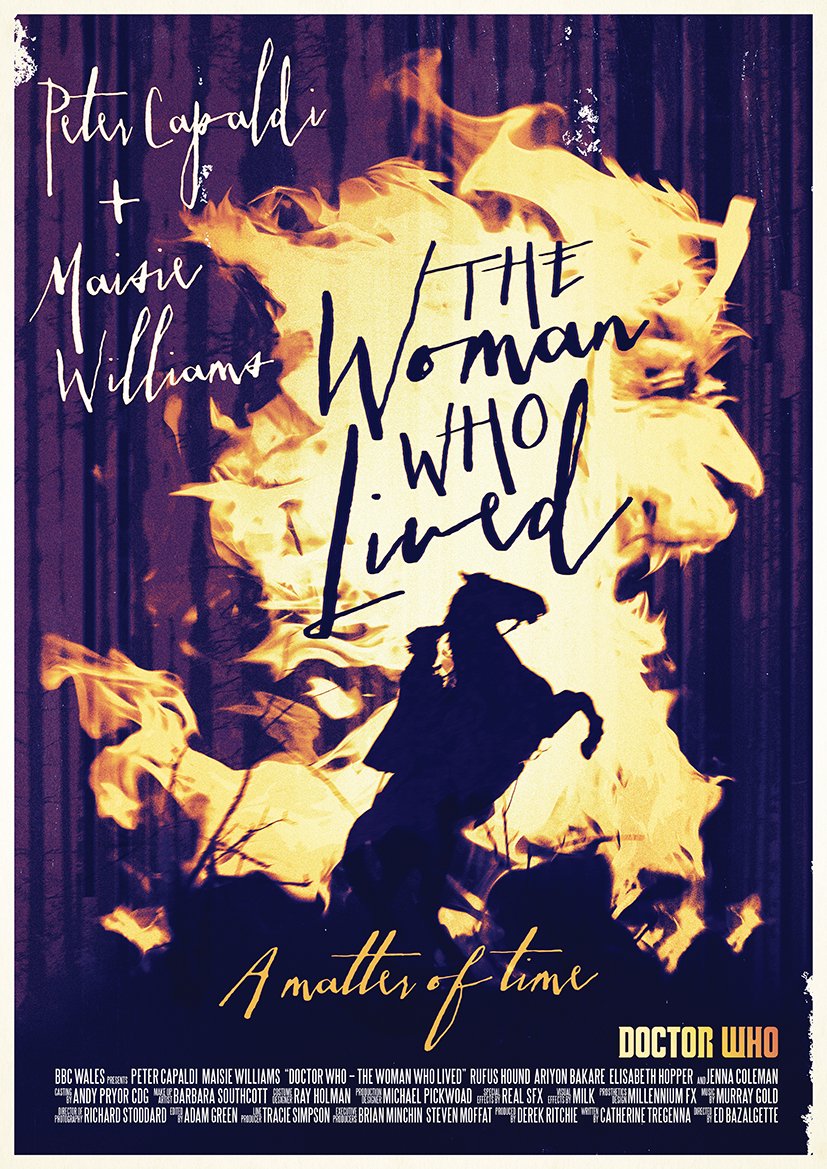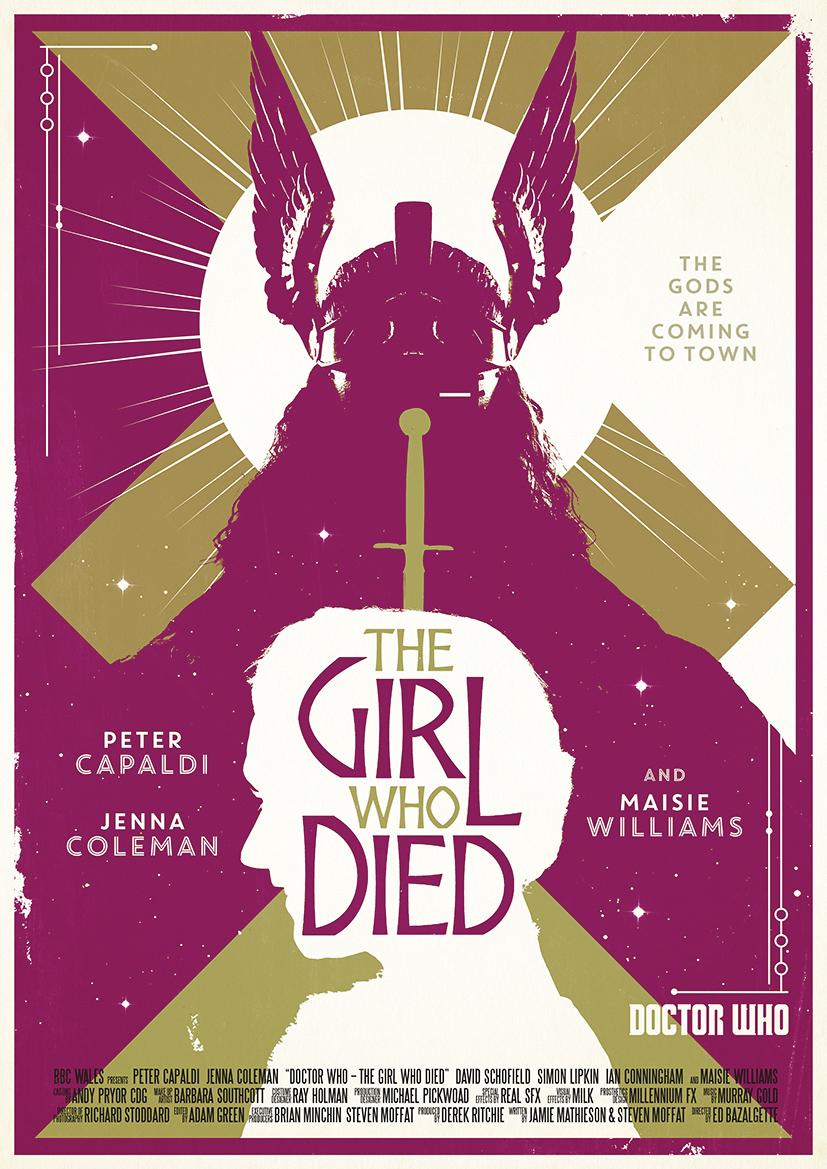Here is the latest retro poster and the episode trailer:
 |
| Designed by Stuart Manning |
 |
| Designed by Stuart Manning |
 |
| Designed by Stuart Manning |
 |
| Designed by Stuart Manning |
|
|
Highest Rated Episode
|
Highest Charted
Episode
|
Lowest Rated
Episode
|
Lowest Charted
Episode
|
|
William Hartnell
|
The Web Planet (13.50m)
|
The Web Planet (7th)
|
The Smugglers: Episode 1 (4.30m)
|
The Smugglers: Episode 1 (109th)
|
|
Patrick Troughton
|
The
Krotons: Episode One (9.00m)
|
The Power
of the Daleks: Episode One (43rd)
|
The War Games: Episode Eight (3.50m)
|
The Space Pirates: Episode Six (98th)
|
|
Jon Pertwee
|
The Three Doctors: Episode Four (11.90m)
|
Planet of the Daleks: Episode One (9th)
|
Inferno: Episode 3 (4.80m)
|
The Time Warrior: Part Three (89th)
|
|
Tom Baker
|
City of Death: Part Four (16.10m) - HIGHEST EVER
|
The Ark in Space: Part Two (5th)
|
Full Circle: Part Two (3.70m)
|
Full Circle: Part Two (170th) - LOWEST EVER
|
|
Peter Davison
|
Castrovalva: Part Four (10.40m)
|
Time-Flight: Part One (26th)
|
Frontios: Part Four (4.60m)
|
Frontios: Part Four (115th)
|
|
Peter Davison (Special)
|
The Five Doctors (7.7m)
|
The Five Doctors (54th)
|
N/A
|
N/A
|
|
Colin Baker
|
Attack of
the Cybermen: Part One (8.9m)
|
Attack of
the Cybermen: Part One (61st)
|
The Trial Of A Time Lord (The Mysterious Planet): Part Four
(3.70m)
|
The Mark of the Rani: Part One (111th)
|
|
Sylvester McCoy
|
Silver
Nemesis: Part One (6.10m)
|
Time and
the Rani: Part Three /
Paradise
Towers: Part Four (57th)
|
Battlefield: Part One (3.10m) - LOWEST EVER
|
The Greatest Show in the Galaxy: Part Three (108th)
|
|
Paul McGann
|
The TV
Movie (9.08)
|
The TV
Movie (17th)
|
N/A
|
N/A
|
|
Christopher Eccleston
|
Rose (10.81m)
|
Rose (7th)
|
Bad Wolf (6.81m)
|
The Empty Child (20th)
|
|
David Tennant
|
Journey's End (10.57m)
|
Journey's End (1st) -
HIGHEST EVER
|
The Satan Pit (6.08m)
|
Silence in the Library (27th)
|
|
David Tennant (Specials)
|
The End of
Time: Part Two (12.27m)
|
The End of
Time: Part One & Part Two (1st) -
HIGHEST EVER
|
The Runaway
Bride (9.38m)
|
The Runaway
Bride (10th)
|
|
Matt Smith
|
The Eleventh Hour (10.08m)
|
The Eleventh Hour (3rd)
|
The Lodger (6.44m)
|
Nightmare in Silver (22nd)
|
|
Matt Smith (Specials)
|
The Day of
The Doctor (12.8)
|
The Doctor, The Widow and the
Wardrobe / The Day of
The Doctor / The Time of
the Doctor (3rd)
|
The Doctor,
The Widow and the Wardrobe (10.77m)
|
A Christmas
Carol (4th)
|
|
Peter Capaldi
|
Deep Breath (9.17m)
|
Deep Breath (2nd)
|
Under the Lake (5.63m)
|
The Witch's Familiar (24th)
|
|
Peter Capaldi (Specials)
|
Last Christmas (8.28m)
|
Last Christmas (7th)
|
N/A
|
N/A
|